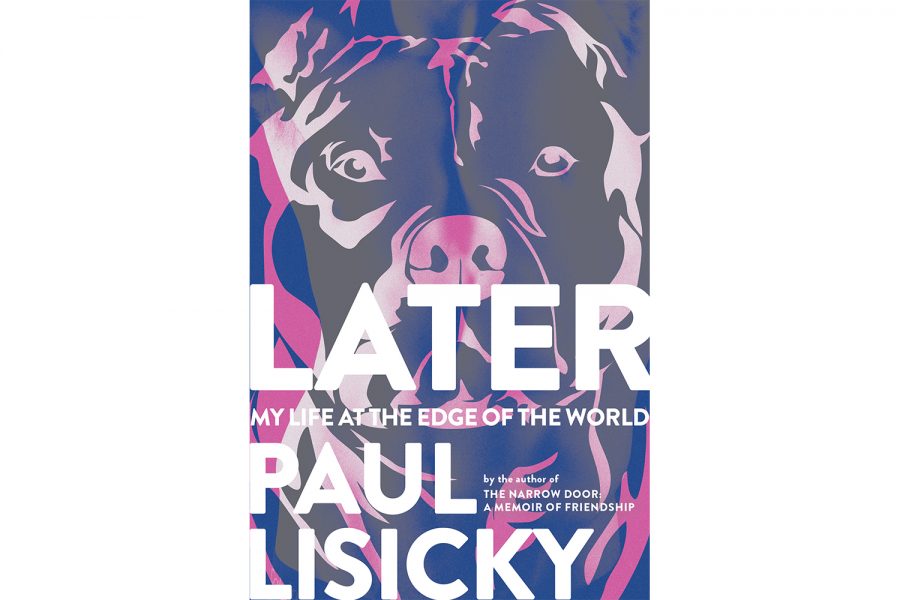UI alum releases memoir about AIDS exploring life, love amid crisis
Paul Lisicky, an alumni of the UI Writers’ Workshop, ruminates on the time he spent in Provincetown, MA, during his youth, exploring the lust, love, and loss he experienced during the AIDS crisis of the ‘90s.
April 2, 2020
As the AIDS crisis rose to devastating heights during the early 1990s, the entire country lived in a state of perpetual fear. Amidst the panic, Provincetown, Massachusetts provided an escape for many members of the LGBTQ community, including University of Iowa Writers’ Workshop alum Paul Lisicky.
Despite the great losses the town suffered due to the disease, it remained a place where community, art, and love thrived. The events that took place there and around the nation eventually led to the March 17 release of Lisicky’s memoir, Later: My Life at the Edge of the World.
Later is Lisicky’s sixth book, and explores his familial relationships, love, life, and quest for belonging during a time of widespread uncertainty.
“It’s a book about a coming-of-age in a dark time,” Lisicky said. “It’s about belonging and identity and connection and how a community kept itself lifted during a time of emergency when ongoingness wasn’t guaranteed.”
Lisicky began working on the memoir in 2015 during a residency at Yaddo, the artist’s colony in Saratoga, New York. Finishing the book was a long process for Lisicky — after completing his first manuscript, he ended up reworking it entirely.
“I noticed that while the book seemed to have energy in certain spots, I could feel it arching toward resolution and wisdom and all of those human cravings for order,” Lisicky said, referring to his earlier drafts of Later. “At that point I sort of pulled it apart. I flipped it into present tense and I inserted some short passages that were not written exactly in narrative time but in poetic time.”
Lisicky explained that he wanted his writing style to mirror the fragmented and emotional experiences he had when living in Provincetown, which he affectionately dubs “Town” in the memoir. Later is made up of small, separately titled paragraphs and vignettes that create a whole, a puzzle that merges Lisicky’s own personal life with the shared life of all the people and friends that have found their place in Provincetown.
Lisicky believes the memoir’s final form is more truthful to the country’s universal experience of living with AIDS.
“There isn’t a neat, orderly way to tell the story of anyone’s experience with a health emergency,” Lisicky said.
HIV haunts every page of the memoir, tainting Lisicky’s youth and complicating his perception of his own identity as a gay man. Lisicky is constantly ruminating on AIDS, on his friends and lovers who have it, on the plethora of obituaries that he reads, on whether or not he himself feels sick and should get tested.
Later follows Lisicky as he struggles to keep the threat of AIDS from completely controlling his life — he dates HIV-positive men, he works on his first novel, and he attempts to unlearn the internalized homophobia that has only been exacerbated by the AIDS pandemic.
Although the AIDS crisis and the general national attitude towards the queer community were both dark realities of Lisicky’s youth, his memoir explores the safe haven that Provincetown provided him. The vibrant, pulsing, and uniquely stylish heart of the town keeps Later alive, weaving each fragmented section together.
Lisicky stated that writing the memoir and returning to his memories of Provincetown was a great comfort to him while grieving the recent loss of his father. Lisicky’s father suffered from an extended battle with pneumonia and was in and out of hospice three times before his death.
“By the time he was gone, I was confused, I was a mess,” Lisicky said. “I think I needed to reach back to those years in Provincetown for company, because that was a time in my life when I felt included and welcomed by others.”
Lisicky was meant to visit Iowa City as part of the annual Mission Creek Festival in early April, but his trip was canceled due to the outbreak of COVID-19. Lisicky mentioned that the impeccable timing of Later’s release had not been lost on him, saying that he still feels shocked that his book about living with a pandemic came out during the time of another pandemic.
Later is certainly a timely book, and it is an important meditation on how to go on living when faced with the fragility of human longevity. The constant threat of time running out hangs heavy on this memoir, but that threat becomes a lesson to Lisicky: a lesson about holding on as tight as you can to what you have and those you love while you still can.
AIDS certainly casts an inescapable shadow over Lisicky’s life in Later, but rather than cower in response, he throws himself into love, sex, and art. In Lisicky’s own words, “what else do you do when the world is ending?”














